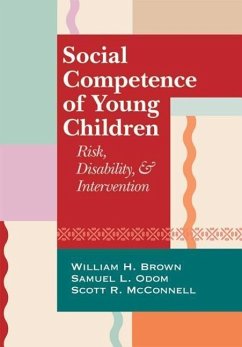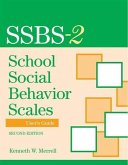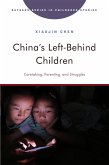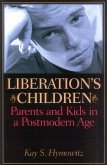Social Competence of Young Children
Risk, Disability, and Intervention
Herausgeber: Brown, William; McConnell, Scott R; Odom, Samuel L
Social Competence of Young Children
Risk, Disability, and Intervention
Herausgeber: Brown, William; McConnell, Scott R; Odom, Samuel L
- Broschiertes Buch
- Merkliste
- Auf die Merkliste
- Bewerten Bewerten
- Teilen
- Produkt teilen
- Produkterinnerung
- Produkterinnerung
How can early childhood professionals ensure that young children have the skills to develop the social relationships they need to succeed? This comprehensive resource puts research and effective strategies within reach as professionals work with children from birth to age 5, especially those who are at risk for or who have social competence difficulties. - increasing positive peer interaction - promoting school readiness - reducing future social competence problems - enhancing children's social behavior This essential volume helps readers - gain a deep and thorough foundation for understanding…mehr
Andere Kunden interessierten sich auch für
![School Social Behavior Scales User's Guide School Social Behavior Scales User's Guide]() Kenneth MerrellSchool Social Behavior Scales User's Guide47,99 €
Kenneth MerrellSchool Social Behavior Scales User's Guide47,99 €![Armies of the Young Armies of the Young]() David M RosenArmies of the Young43,99 €
David M RosenArmies of the Young43,99 €![The Public Assault on America's Children The Public Assault on America's Children]() The Public Assault on America's Children27,99 €
The Public Assault on America's Children27,99 €![Learning to Navigate Through My Social-Emotional World Learning to Navigate Through My Social-Emotional World]() Ryann MojicaLearning to Navigate Through My Social-Emotional World19,99 €
Ryann MojicaLearning to Navigate Through My Social-Emotional World19,99 €![China's Left-Behind Children China's Left-Behind Children]() Xiaojin ChenChina's Left-Behind Children38,99 €
Xiaojin ChenChina's Left-Behind Children38,99 €![Liberation's Children Liberation's Children]() Kay S HymowitzLiberation's Children12,99 €
Kay S HymowitzLiberation's Children12,99 €![Childhoods in More Just Worlds Childhoods in More Just Worlds]() Childhoods in More Just Worlds47,99 €
Childhoods in More Just Worlds47,99 €-
-
-
How can early childhood professionals ensure that young children have the skills to develop the social relationships they need to succeed? This comprehensive resource puts research and effective strategies within reach as professionals work with children from birth to age 5, especially those who are at risk for or who have social competence difficulties. - increasing positive peer interaction - promoting school readiness - reducing future social competence problems - enhancing children's social behavior This essential volume helps readers - gain a deep and thorough foundation for understanding social competence - examine key influences on social development - pinpoint strategies for social interaction interventions specific to different populations - understand the effects of disabilities on peer interactions and relationships - compare and contrast the efficacy of several well-known commercial programs
Produktdetails
- Produktdetails
- Verlag: Brookes Publishing Company
- Seitenzahl: 360
- Erscheinungstermin: 6. November 2007
- Englisch
- Abmessung: 251mm x 176mm x 19mm
- Gewicht: 612g
- ISBN-13: 9781557669230
- ISBN-10: 1557669236
- Artikelnr.: 23097209
- Herstellerkennzeichnung
- Libri GmbH
- Europaallee 1
- 36244 Bad Hersfeld
- gpsr@libri.de
- Verlag: Brookes Publishing Company
- Seitenzahl: 360
- Erscheinungstermin: 6. November 2007
- Englisch
- Abmessung: 251mm x 176mm x 19mm
- Gewicht: 612g
- ISBN-13: 9781557669230
- ISBN-10: 1557669236
- Artikelnr.: 23097209
- Herstellerkennzeichnung
- Libri GmbH
- Europaallee 1
- 36244 Bad Hersfeld
- gpsr@libri.de
Dr. Brown joined the faculty at the University of South Carolina (USC) in 1995, and, in addition to his work in the Department of Educational Studies in the College of Education, he is a member of the USC Research Consortium on Children and Families. Samuel L. Odom, Ph.D., is the former Director of the Frank Porter Graham (FPG) Child Development Institute where he remains as a Senior Research Scientist. Prior to his work at The University of North Carolina at Chapel Hill, Dr. Odom served in faculty positions at Indiana University and Peabody College/Vanderbilt University. Dr. Odom received a master's degree in special education in 1976 and an educational specialist degree in educational psychology from the University of Tennessee at Knoxville in 1979. He earned his doctorate in 1982 in education and human development from the University of Washington. Throughout his career, Dr. Odom has held positions as a preschool teacher, student teaching supervisor, program coordinator, teacher educator, and researcher. Dr. Odom's research interests include interventions and teaching approaches that promote social competence of young children, effective intervention approaches for children with autism, and early childhood curricula that promote children's school success. He is the author or co-author of over 175 journal articles and book chapters and has edited 10 books on early childhood intervention and developmental disabilities. His current research is addressing treatment efficacy for children and youth with ASD in elementary and high school grades. Also, he is the Co-Director of the National Clearinghouse on Autism Evidence and Practice at FPG. Dr. Odom is an associate editor for Exceptional Children and is on the editorial board of Journal of Early Intervention, Topics in Early Childhood Special Education, Journal of Autism and Developmental Disabilities, and Early Childhood Research Quarterly. He received the Special Education Outstanding Research Award from the American Educational Research Association Special Education Special Interest Group in 1999, the Merle Karnes Contribution to the Field Award from the Division for Early Childhood of the Council for Exceptional Children (CEC) in 2001, and the Outstanding Special Education Research Award from CEC in 2007. In 2013, he received the Arnold Lucius Gesell Prize awarded for career achievement in research on social inclusion and child development from the Theordor Hellbrugge Foundation in Munich, Germany. In 2016, he received an honorary doctoral degree from Stockholm University. He is currently a visiting professor at Stockholm University and San Diego State University. Scott R. McConnell, Ph.D., is Scott McConnell is Professor of Educational Psychology and Fesler-Lampert Chair in Urban and Regional Affairs at the University of Minnesota. His research focuses primarily on preschool-aged children, and the skills and competencies that will enable them to learn and participate in school and other settings. He and his colleagues at IGDILab are developing and testing applications for Individual Growth and Development Indicators of language and early literacy development for preschoolers. He also is involved in several efforts, locally and nationally, to eliminate the word gap-language disparities that occur early in young children's lives. Dr. Buysse is Senior Scientist at the Frank Porter Graham Child Development Institute at the University of North Carolina at Chapel Hill. In addition to directing a program of research on Recognition & Response, a model of response to intervention for prekindergarten, her research interests include innovations in professional development; models such as consultation, coaching, mentoring, and communities of practice that support professional development and program improvement; and educational practices and interventions that address the unique needs of diverse learners--those who have disabilities, who have learning difficulties, or who are dual language learners. Dr. Conroy is the Anita Zucker Endowed Professor, Professor of Special Education and Early Childhood Studies in the Department of Special Education, School Psychology, and Early Childhood Studies, and Co-Director of the Anita Zucker Center for Excellence in Early Childhood Studies at the University of Florida. Dr. Conroy has extensive experience in conducting early intervention research with children who are at risk for or who have social and behavioral disabilities. Dr. Paddy C. Favazza has a background and research focus in the areas of: the social inclusion, attitude development, and social and motor development with particular interest in curriculum development related to inclusion and motor development and, the use of motor skill programs for young children with disabilities as a vehicle for inclusion within the family, school and community in developing nations in a global context. Professor Favazza is a former teacher of young children with disabilities, an advocate for the rights and dignity of all children; committed to ensuring that curriculum and strategies used in early childhood have sound theoretical underpinnings, represent evidenced based practice, engage families and are culturally responsive. Howard Goldstein, Ph.D., CCC-SLP, is a nationally known scholar in the field of child language intervention research and the author of two books and more than 100 scholarly articles. His recent work has sought to enhance the language and literacy development of students in high poverty schools who are at high risk for language and reading disabilities. A certified speech-language pathologist and former ASHA Vice President for Science and Research, Dr. Goldstein is currently Associate Dean of Research and Professor of Communication Sciences and Disorders in the College of Behavioral and Community Sciences at University of South Florida in Tampa. Marci J. Hanson, Ph.D., is Professor in the Department of Special Education at San Francisco State University (SFSU). At SFSU, Dr. Hanson is actively engaged in teaching, research, and service related to young children and their families. In addition to these responsibilities, she directs the SFSU joint doctoral program in special education with the University of California, Berkeley, and codirects the early childhood special education graduate program. She is a consultant with the child and adolescent development faculty of the Marian Wright Edelman Institute for the Study of Children, Youth, and Families at SFSU and with San Francisco Head Start. Dr. Michaelene M. Ostrosky is Grayce Wicall Gauthier Professor of Education and Head of the Department of Special Education at the University of Illinois at Urbana-Champaign (UIUC). She has been involved in research and dissemination on the inclusion of children with disabilities, social-emotional competence, and challenging behavior. Through her work on the national Center on the Social Emotional Foundations for Early Learning she was involved in the development of the Pyramid Model for Supporting Social Emotional Competence in Young Children. Professor Ostrosky is a former editor of Young Exceptional Children (YEC) and the co-editor of several YEC monographs. She co-authored the Making Friends book (2016), which supports the acceptance of individuals with disabilities, and The Project Approach for All Learners (2018). Professor Ostrosky has been recognized for her professional accomplishments with honors such as UIUC University Scholar, Goldstick Family Scholar, College of Education Senior Scholar, and the Division of Early Childhood of the Council for Exceptional Childrenâ (TM)s Award for Mentoring. Dr. Schwartz is Professor of Special Education and Director of the Haring Center at the University of Washington. Dr. Schwartz is also the Director of Project DATA (Developmentally Appropriate Treatment for Autism), a school‐based early intervention intensive behavioral intervention program for children with autism. She has an extensive background working with young children with special needs and their families, specifically with young children with autism and related disabilities. Dr. Schwartz is the director of the Applied Behavior Analysis Program at the UW, and is dedicated to creating high quality inclusive schools so that all children, regardless of their background or ability, can attend the school of their choice and receive a high quality education. Dr. Schwartz has published numerous chapters and articles about early childhood education and social validity. She serves on the editorial review boards of Topics in Early Childhood Special Education and the Journal of Early Intervention. Susan M. Sheridan, Ph.D., is Director of the Nebraska Center for Research on Children, Youth, Families and Schools (CYFS), and a George Holmes University Professor of Educational Psychology at the University of Nebraska-Lincoln. Dr. Sheridan&s research is focused on parent-teacher relationships; the development of meaningful home-school partnerships; early childhood education and interventions; rural education; and interventions promoting childrenâ (TM)s social skills, social-emotional development and behavioral competencies. Dr. Sheridan has published more than 100 books, chapters, and refereed journal articles on these and related topics. Noteworthy awards include the American Psychological Associationâ (TM)s Division 16 (School Psychology) Lightner Witmer Award (1993) for early career accomplishments and the Senior Scientist Award (2015) for distinguished career-long scholarship, the 2005 Presidential Award from the National Association of School Psychologists, and the 2014 University of Nebraskaâ (TM)s Outstanding Research and Creativity Award. Gary N. Siperstein, Ph.D., is Founder and Director of the Center for Social Development and Education (CSDE) at the University of Massachusetts Boston. CSDE is a research and training institute focused on improving the social and academic adjustment of children with learning problems who are at risk for academic and social failure. For more than 20 years, CSDE has been gathering data on the social functioning of children with special needs. A professor at the University of Massachusetts Boston since 1976, Dr. Siperstein received his doctorate at the Ferkauf Graduate School of Psychology, Yeshiva University. He has published approximately 100 articles, chapters, and books on the social relationships and social development of children with disabilities. He has served as associate editor and editor of national journals and has received more than 20 research grants from federal agencies, including the National Institute of Child Health and Human Development (NICHD) and the U.S. Department of Education. Dr. Siperstein received the prestigious Merit Award from NICHD for his work on the social aspects of mental retardation. Enhancing the social competence of children with disabilities in inclusive educational settings has been the focus of his most recent projects. Dr. Siperstein is presently President-Elect of the Division for Research of the Council for Exceptional Children (CEC). Phillip Strain, Ph.D., is James C. Kennedy Endowed Chair in Urban Education at the Morgridge College of Education and Director of the Positive Early Learning Experiences Center at the University of Denver. Dr. Strain is the author of more than 300 professional papers that have focused on young children with autism, prevention of challenging behavior, and inclusion practices. In his 4 decades in the field, he has been a teacher, early intervention program administrator, and university professor. Dr. Strainâ (TM)s research on challenging behavior and autism has received more than $80 million dollars in grant support, and this work has garnered multiple career achievement awards.








